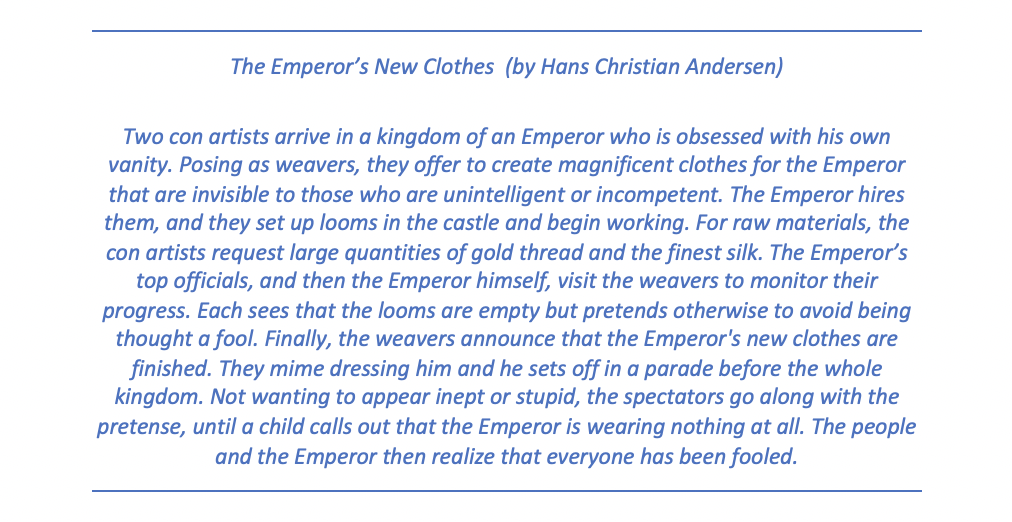Optimism for the future abounds: the pace of vaccinations is accelerating, signs of Spring are everywhere, and exuberant equity markets are at all-time highs. For much of the past 12 months we have had a positive outlook on markets as the combination of attractive valuation and improving outlook encouraged an increased allocation to equities within our asset allocation model. While the economic outlook remains bright, the valuation pendulum has swung decidedly toward fully valued territory. Most segments of the market appear to have shaken off the pandemic shock of 2020 and are pricing in a strong economic and earnings recovery ahead. Meanwhile, some sectors, fueled by equal parts monetary stimulus and speculation, appear to have become detached from fundamental reality. Our fundamental, valuation-focused investment approach has prompted us to shift to a neutral position in the short-term.
In theory, the price of a stock is based on the present value of its cumulative future earnings. Macro, industry, and company-specific developments are continuously influencing the likely path of future earnings. Since a dollar of earnings today is worth more than a dollar of earnings in the future (i.e. the time value of money) the level of interest rates are another key determinant of value, with lower interest rates increasing the present value of future earnings and vice versa. Behavioural finance has taught us that a third variable, investor sentiment, is also at work in the determination of stock prices.
At the outset of the pandemic, the future path of earnings became opaque, investor sentiment sank, and central banks responded by slashing interest rates. For value-oriented investors like us, the alignment of these variables presented a buying opportunity. Twelve months later, as the positive outlook becomes widespread, we find that two of these variables have moved or are moving in a direction that make the equity market less appealing in the short-term. Namely, long-term interest rates are rising, and investor sentiment has swung from pessimism to euphoria. As a short-term tactical strategy, we are reducing equity exposure modestly in client portfolios as the near-term risk/reward relationship has become less favourable.
At the beginning of this year we highlighted that rising long-term interest rates were the primary risk to capital markets in 2021. This concern has come to fruition as the 10-year U.S. Treasury bond yield, the benchmark for equity valuation models, has increased from 0.92% at the beginning of the year to 1.72% currently. The increase in bond yields is a result of an improving economic outlook and rising inflation expectations. Over the past four weeks, higher bond yields have become a headwind, particularly in sectors of the market where there are little or no current earnings and rising bond yields are like kryptonite to the present value of future earnings. A high concentration of these companies is in the technology and consumer discretionary sectors, where we have an underweight position.
To be clear, we are not averse to investing in growth companies. It is the high valuation that many of them trade at that makes them unattractive to us. The year-to-date underperformance of the technology-centric Nasdaq Composite Index (+0.9% in CAD terms as of March 19) versus the broad-based Dow Jones Industrial Index (+4.9% in CAD terms) is evidence that higher bond yields are starting to weigh on the valuation and appetite for the former. We expect this relative underperformance to continue in coming months so long as bond yields remain upwardly biased.
Indeed, we continue to be baffled at the extremely rich valuations being afforded to many of these “new economy” companies. Just as “price-to-eyeballs” became a popular justification for exorbitant valuations during the dot-com period 20 years ago, a metric that has become popular in recent months is “price-to-story”. By definition, “story stocks” are companies that are years away from meaningful revenue or earnings, but trade at massive valuations because investors believe that their product or service may become dominant in the future. Out of this group some may emerge to be successful, while many will likely not. Investors’ willingness to value something so greatly that hasn’t materialized yet reminds us of the lesson in Hans Christian Andersen’s fable The Emperor’s New Clothes (see below for an abbreviated version for those that missed reading the story in their younger years). In the context of capital markets, what we have learned is that price doesn’t necessarily define a company’s true worth. Price is simply what the consensus thinks it’s worth at a particular point in time. Like the child in the story, there are pockets of the market where we have no hesitation in stating that the Emperor has no clothes.





